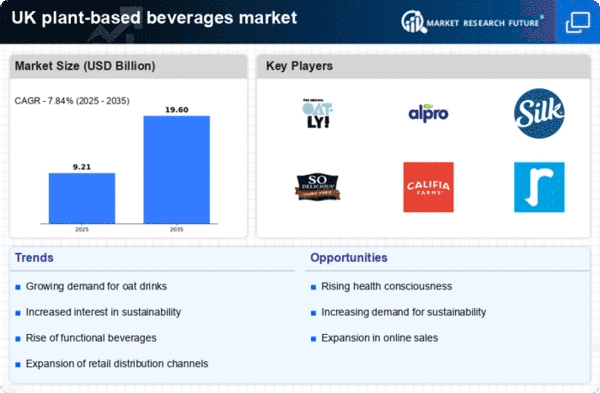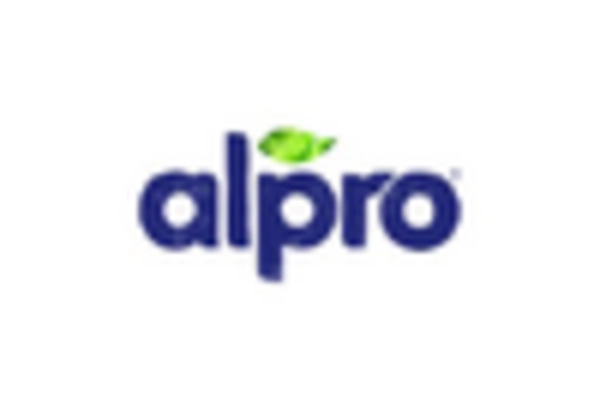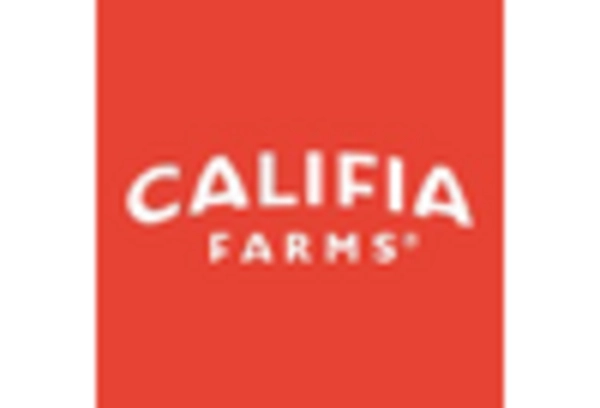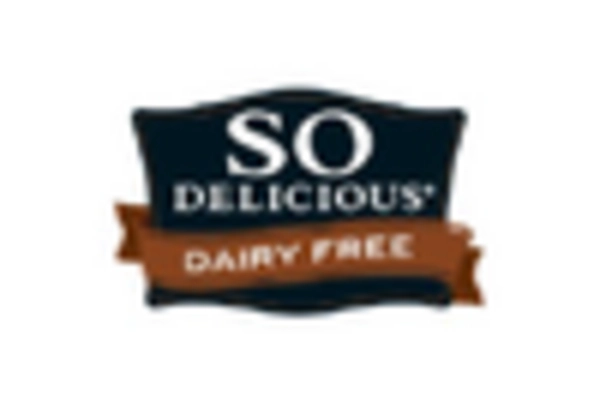Innovative Product Development
Innovation in product development is a significant catalyst for growth within the plant based-beverages market. Companies are increasingly experimenting with new ingredients and formulations to attract a diverse consumer base. For instance, the introduction of beverages made from alternative sources such as oat, almond, and coconut has gained traction. According to market data, the oat milk segment alone has seen a growth rate of over 30% in recent years. This innovation not only enhances the variety available to consumers but also addresses specific dietary needs, such as lactose intolerance. As brands continue to push the boundaries of creativity, the plant based-beverages market is likely to expand further, appealing to both traditional and new consumers alike.
Rising Veganism and Plant-Based Diets
The increasing adoption of veganism and plant-based diets in the UK is a pivotal driver for the plant based-beverages market. As more consumers opt for plant-based lifestyles, the demand for beverages that align with these dietary choices rises. Recent surveys indicate that approximately 7% of the UK population identifies as vegan, a figure that has been steadily increasing. This shift is not merely a trend but reflects a broader cultural change towards health and ethical consumption. Consequently, brands are innovating to create beverages that cater to this demographic, leading to a surge in product offerings. The plant based-beverages market is thus experiencing a transformation, with companies investing in research and development to meet the evolving preferences of health-conscious consumers.
Health Benefits and Nutritional Awareness
The growing awareness of health benefits associated with plant-based diets is a crucial driver for the plant based-beverages market. Consumers are increasingly informed about the nutritional advantages of plant-based beverages, such as lower cholesterol levels and higher antioxidant content. This awareness is supported by various health organizations advocating for plant-based diets as a means to improve overall health. As a result, the demand for fortified plant based-beverages, enriched with vitamins and minerals, is on the rise. Market analysis shows that products marketed for their health benefits are experiencing higher sales growth, indicating a clear consumer preference. The plant based-beverages market is thus likely to continue expanding as health-conscious consumers seek out nutritious options.
Environmental Awareness and Climate Change
Growing environmental awareness among consumers is driving the plant based-beverages market in the UK. As individuals become more conscious of their ecological footprint, they are increasingly seeking products that are sustainable and environmentally friendly. Research indicates that plant-based beverages typically have a lower carbon footprint compared to their dairy counterparts, making them an attractive option for eco-conscious consumers. This shift is reflected in purchasing behaviors, with many consumers willing to pay a premium for products that align with their values. The plant based-beverages market is thus positioned to benefit from this trend, as brands that emphasize sustainability in their messaging and practices are likely to resonate more with consumers.
Changing Consumer Preferences and Lifestyle Choices
Shifts in consumer preferences and lifestyle choices are significantly influencing the plant based-beverages market. The modern consumer is increasingly looking for convenience, variety, and quality in their beverage choices. This trend is evident in the rise of ready-to-drink plant based-beverages, which cater to busy lifestyles while offering healthier alternatives. Additionally, the demand for unique flavor combinations and artisanal products is growing, as consumers seek to enhance their drinking experience. Market data suggests that the premium segment of plant based-beverages is expanding rapidly, driven by consumers willing to invest in high-quality, innovative products. As these preferences evolve, the plant based-beverages market is expected to adapt, providing a wider array of options to meet consumer demands.
















